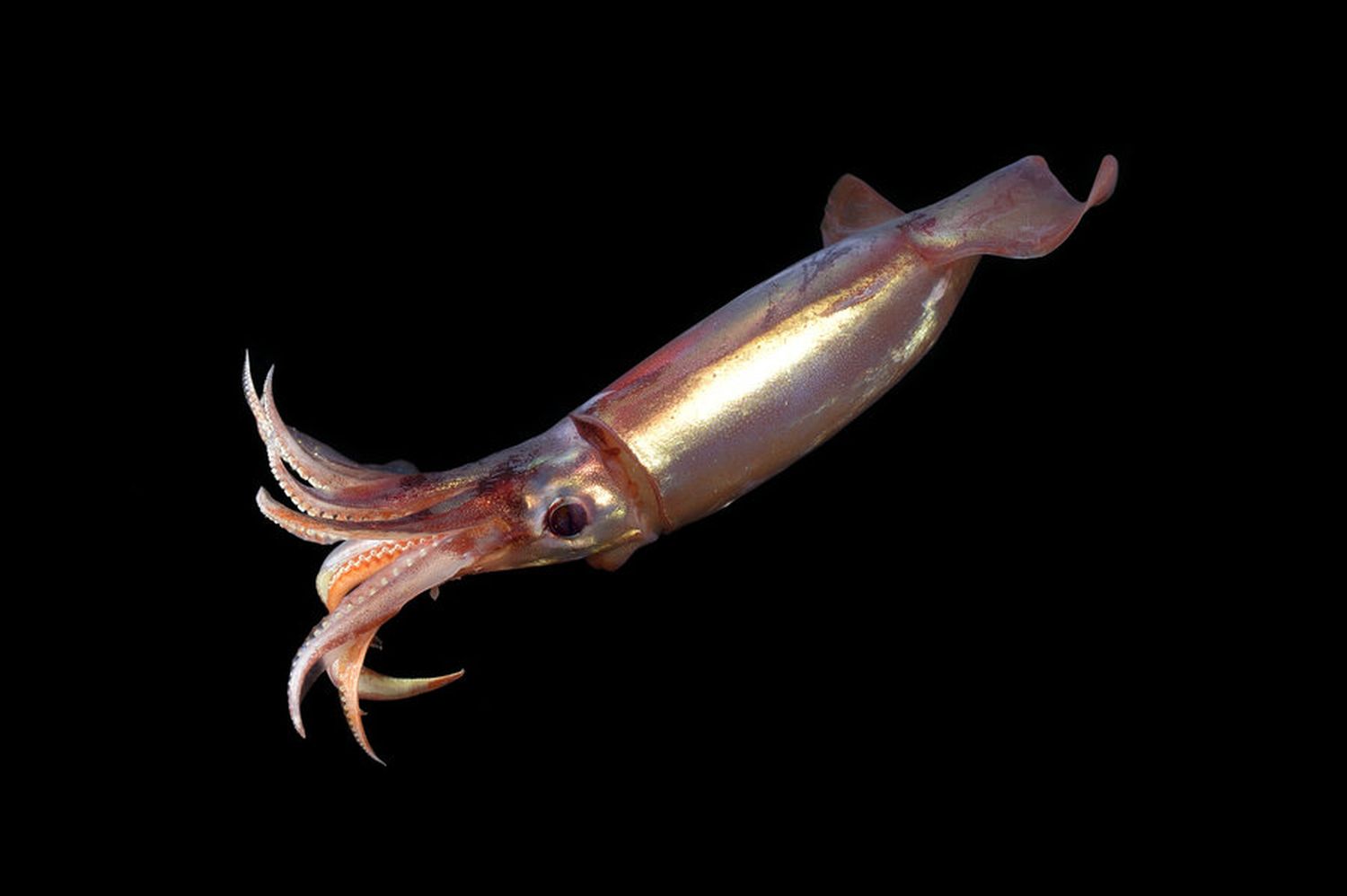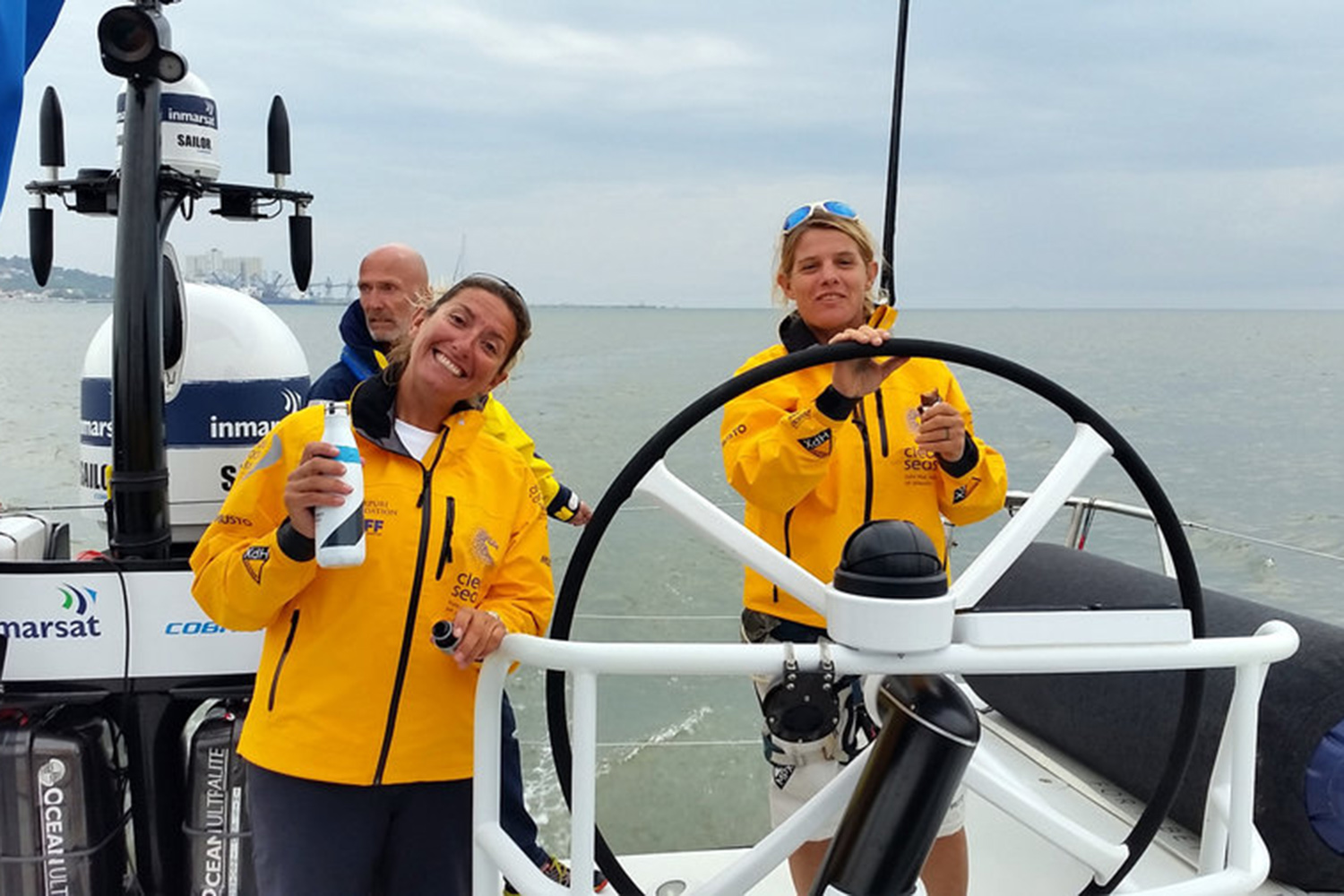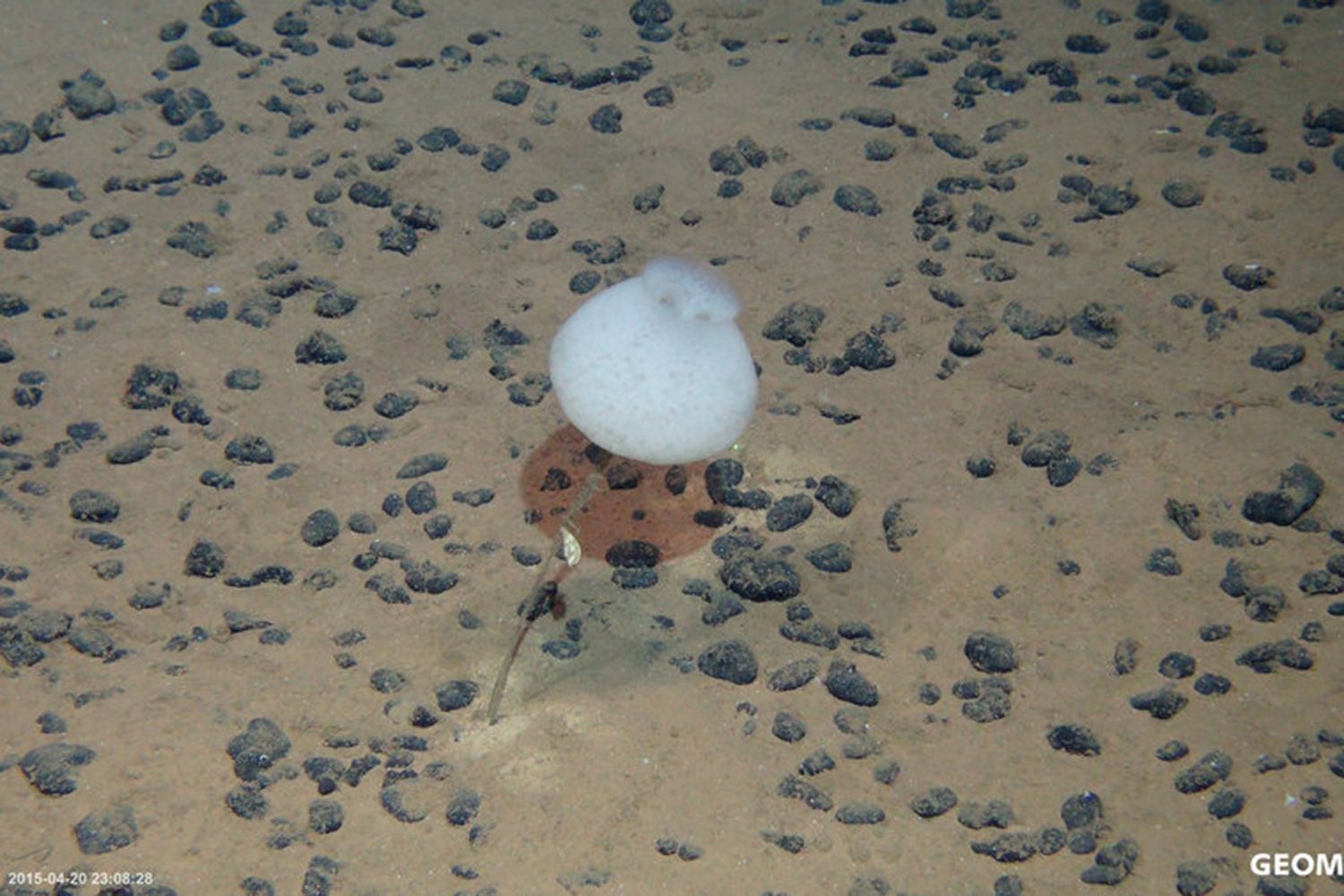"The simplest way to see into the future is to look at the past," says Dr. Nina Keul from the Cluster of Excellence "The Future Ocean". The postdoctoral researcher in the Working Group Marine Climate Research at the Institute of Geosciences at Kiel University is developing a method to estimate how temperature and carbon dioxide content have changed over millennia. For this purpose, she uses living organisms which are only a few millimeters in size, so-called sea butterflies or pteropods.
These planktonic marine snails have existed in all oceans of the Earth for thousands of years. In samples which were taken in the North Atlantic, Nina Keul analyzed the chemical composition of pteropod shells in reaction to temperature and acidity. She found that a change in these parameters changes the chemical composition of shells. Thus the small sea butterflies are promising indicators for climate data from the past that record climate change very well, as Nina Keul and her international cooperation partners from the Netherlands, Hawaii and England report in the Nature publication Scientific Reports.
Up to now mainly the so-called foraminifera have been studied for the reconstruction of oceanic climate history. These single-cell organisms also have calcareous shells. Using sea butterflies as climate indicators allows further findings. In contrast to foraminifera, which only survive for a few months, sea butterflies can live up to one year. In this way, it is possible to draw conclusions with regard to seasonal fluctuations in temperature.
"It is very exciting because now we can analyze fossil pteropods collected in the Caribbean. We will then be able to estimate past ocean acidification and ocean warming in this region and will use these changes in the climate history as a simulation for the future," explains Dr. Nina Keul.
Original work
N. Keul, K. T. C. A. Peijnenburg, N. Andersen, V. Kitidis, E. Goetze & R. R. Schneider, Pteropods are excellent recorders of surface temperature and carbonate ion concentration, Scientific Reports 7, 2017, doi:10.1038/s41598-017-11708-w, www.nature.com/articles/s41598-017-11708-w#Abs1
Links
www.futureocean.org (about the Cluster of Excellence "The Future Ocean")
Contact
Dr. Nina Keul
Marine Climate Research, Institute of Geosciences
Kiel University (CAU),
Lamont-Doherty Earth Observatory, Columbia University
E-Mail: keul@gpi.uni-kiel.de
Telephone: 0431-880-3253
Friederike Balzereit
Public Relations
Cluster of Excellence "The Future Ocean"
E-Mail: fbalzereit@uv.uni-kiel.de
Telephone: 0431-880-3032
…


